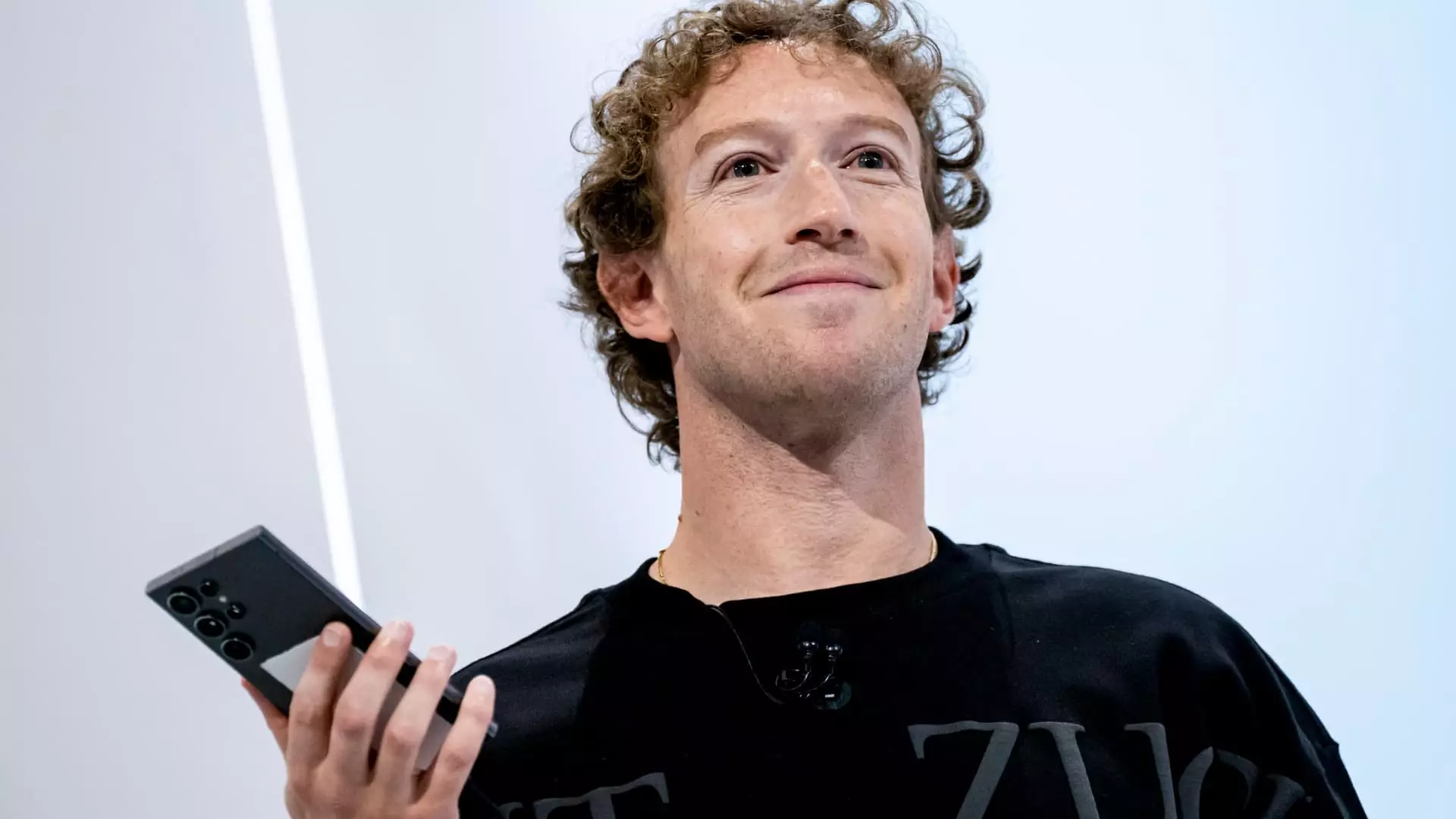The dialogue around Covid-19 vaccinations and the handling of misinformation has been a pivotal issue in recent times. The recent revelations made by Meta’s CEO, Mark Zuckerberg, during his conversation with Joe Rogan offer a lens into both the inner workings of tech companies and the political pressures that shape their policies. Zuckerberg’s candid remarks illustrate the intricate balance between promoting public health initiatives and allowing freedom of speech in the online realm, raising critical questions about trust, ethics, and the role of social media in contemporary society.
Zuckerberg’s admission that the Biden administration exerted pressure on Meta to censor content related to vaccine side effects underscores a troubling trend wherein governmental bodies attempt to guide the narrative surrounding public health. While the intention behind such pressure may be to curtail misinformation, it inherently raises ethical dilemmas about censorship and the rights of individuals to access a full spectrum of information. The statement that content labeling legitimate vaccine side effects should be removed reveals the complexities within the discourse about health and the potential ramifications for freedom of expression.
Moreover, this narrative doesn’t operate in isolation; it reflects broader tensions between political entities and digital platforms. Zuckerberg characterizes himself as generally supportive of vaccines, emphasizing that while promoting the positive aspects of vaccination, it is crucial to approach dissenting opinions with an open mind. However, the balance between promoting public health and allowing the public to engage in discussions about vaccine efficacy and safety is precariously thin.
Meta’s Shift in Policy: A Response to Criticism
In light of the growing scrutiny over content moderation practices, Meta has made the strategic decision to move away from relying on third-party fact-checkers, opting instead for community-driven assessments of information accuracy. This shift is reminiscent of practices seen on platforms like X, owned by Elon Musk, and reflects an increasing trend toward user empowerment in moderating discourse. However, it also raises significant questions regarding the reliability and expertise of community contributors, which could potentially lead to a proliferation of misinformation rather than a curtailment of it.
Zuckerberg’s comments further highlight a responsive, albeit reactive, approach to the ongoing scrutiny from governmental authorities and public perception. The decision to pivot in content moderation aligns with an effort to address widespread criticism that suggests tech giants overreach in their censorship efforts. As Zuckerberg himself indicated, there is regret over conforming to external pressures, hinting at a desire for increased autonomy in their content moderation decisions.
Trust plays a pivotal role in public health, particularly within the context of vaccination. Reports about the pervasive sidelining of legitimate concerns regarding vaccine side effects can erode trust in health initiatives. While it is essential to combat misinformation, outright censorship can lead to skepticism towards vaccines as a whole. The public’s acceptance of vaccinations depends not only on information provided but also on communication that acknowledges and addresses concerns transparently.
Furthermore, President Biden’s remarks on Meta’s revised fact-checking policy signal a broader societal concern about the integrity of information circulating within digital platforms. His characterization of tech companies as wielding immense influence highlights an ongoing debate about accountability and the responsibility of these platforms to cultivate a space that mitigates harm while promoting honesty.
Looking Ahead: Balancing Interests in a Digital Age
As Zuckerberg articulates concerns about the U.S. government’s lack of protection for its tech industry and the influence of foreign regulators, a significant question emerges: How can balance be achieved in the digital realm to protect both public health interests and freedom of expression? The evolving landscape of technology, imbued with political motivations, necessitates a collaborative dialogue among stakeholders, including tech companies, policymakers, public health officials, and the general populace.
Ultimately, Zuckerberg’s reflections serve as a stark reminder of the complexities inherent in the intersection of technology, governance, and public health. In navigating these challenges, it is imperative for all parties involved to work toward a shared vision prioritizing both health and free expression, creating an environment where open dialogue can lead to informed, constructive engagement regarding vital public health issues.

